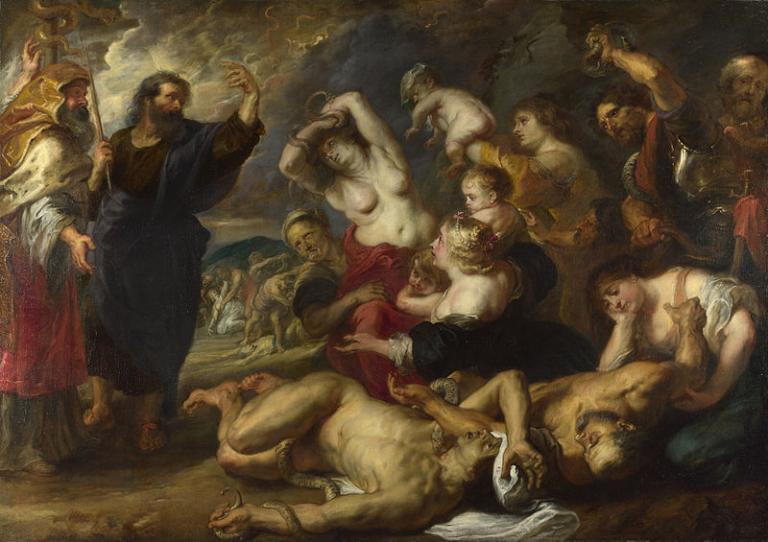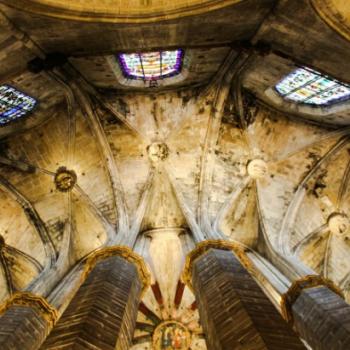by Brandon Showalter
Whenever I read the story of Moses entering the Tent of Meeting in Exodus 33, David’s words in Psalm 34:5, or Paul’s wisdom in 2 Corinthians 3:7-12, I am always intrigued by the effect God himself has on our faces. I am definitely not speaking of the insufferable, plastic Christian smile I must admit that I have worn more than once to communicate that I am just fine when in fact I am not. I am speaking of the blazing eyes of someone who exudes the love of Christ so brightly that you can almost reach out and touch it; it is the kind of captivating gaze upon which you want to stare for hours. Some of the most powerful encounters with the Lord I have ever experienced have been when I have beheld the face of someone who knows Him so intimately that his or her countenance effortlessly emanates his radiance. Jesus said in the Sermon on the Mount that the pure in heart would see God, and you can certainly tell who has seen him because those who have seen him are like Him.
This is more than what some might call an inner light, a twinkle in the eye, or a sunny, sanguine demeanor. This is the essence of God’s love, the glory that overcomes fear and crushes demonic strongholds. When a Christian becomes conscious of this glory, unlike the type Moses encountered in the Tent which faded away, the surpassing glory never decreases and its substance spills over into the atmosphere through his or her face. No longer must we veil our heads to keep others from looking at a brilliance that slowly dissipates from view, but we have the distinct privilege of carrying a lasting and ever-increasing presence that causes those who do not know Jesus to be drawn to God. Everyone wants a King like Him; Jesus is, after all, the Desire of Nations. Far too many are just not yet aware of it.
“As He is, so are we in this world,” wrote John the Beloved (1 John 4:17), the man who knew the rhythms of the heart of the Lord more than any of the other disciples. He penned that particular passage after Christ had been raised from the dead and the Holy Spirit had been poured out at Pentecost. Yet prior to Pentecost, Jesus asked Mary Magdalene in the garden to not hold onto him because he had not yet gone to the Father (John 20:17), and although Jesus announced that he was entering into his glory right after Judas Iscariot left the table at the Last Supper, the final step in that process was him actually returning to the Father. Unless he went, the Spirit could not come. The Greek word for glory used all throughout the New Testament, doxa, means radiance, brilliance. So until the Son of Man was glorified, clothed in the white-hot radiance of God, there could be no outpouring of the Holy Ghost.
Our Father not only sent the Son to die and be raised for us, he also sent his Spirit to inhabit and rest upon us. He cannot get much nearer to us than in and on us, and the Holy Spirit who was poured out was not the spirit of a man who was about to be nailed to a wooden cross but of the man whom John the Beloved saw while on Patmos: the man Jesus who speaks with the voice of rushing waters, has feet like burnished bronze, hair white like wool and—what else?—a face beaming like the sun. As He is, so are we in this world. The Son of Man remains glorified, wrapped in light, seated at the Father’s right hand, and in that heavenly realm we are seated right there with him.
We received that Spirit, he who is a victorious, glorified Son by whose indwelling we are enabled to live and be something absolutely impossible apart from him: holy. Shame and its accompanying darkness does not, indeed it cannot, cover the face of someone saturated in holiness because in the fires of God’s love it is impossible to be conscious of regret or past sin. He can only be aware of Him who has destroyed his transgressions and exchanged them for glory. Squeaky-clean conduct and the performance-oriented work of religious striving collapses in His presence, every pretension with which we mask ourselves stripped away and replaced with the Spirit by whom we can cry out to Abba Father anytime. That is real holiness, such intimate proximity to God.
As He is, so are we: radiant, glorious, and free, with faces that blaze like torches in this dark and troubled world. How we need all need this revelation. Perhaps the next time someone prays that the Lord bless and keep us and make the light of his countenance to shine upon us—and the risen Lord has one spectacularly bright countenance—we might apprehend this truth a bit more and our own faces display the glory of God more fully.
 Brandon Showalter is a graduate of Bethel School of Ministry in Redding, California and his favorite thing to do in life is to sing. A recording artist and classically trained lyric tenor, his debut album, Song of Psalms EP, includes five original adaptations of selected Psalms set to melodies inspired by the Holy Spirit. Passionate about discipleship, dynamic intercessory prayer, and raising up people to live in the fullness of their identity in Christ, Brandon has traversed several continents to minister in a variety of contexts, both inside and outside the local church. Originally from the Shenandoah Valley of Virginia, he received his BA in International Studies and Spanish in 2007 from Bridgewater College of Virginia and is a fellow of the John Jay Institute for Faith, Society and Law.
Brandon Showalter is a graduate of Bethel School of Ministry in Redding, California and his favorite thing to do in life is to sing. A recording artist and classically trained lyric tenor, his debut album, Song of Psalms EP, includes five original adaptations of selected Psalms set to melodies inspired by the Holy Spirit. Passionate about discipleship, dynamic intercessory prayer, and raising up people to live in the fullness of their identity in Christ, Brandon has traversed several continents to minister in a variety of contexts, both inside and outside the local church. Originally from the Shenandoah Valley of Virginia, he received his BA in International Studies and Spanish in 2007 from Bridgewater College of Virginia and is a fellow of the John Jay Institute for Faith, Society and Law.













